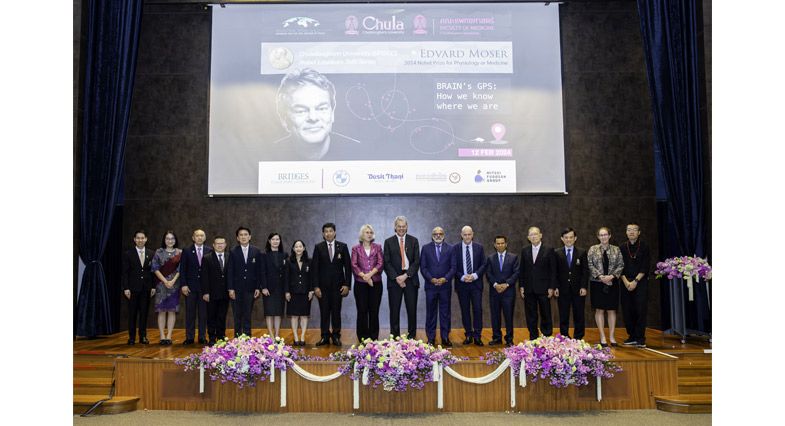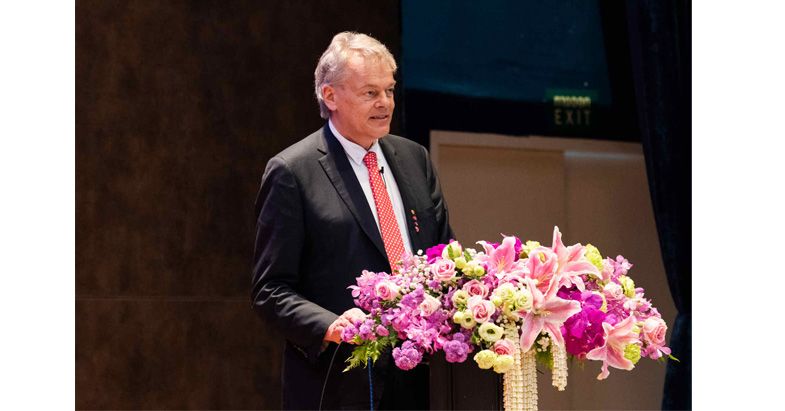The Chulalongkorn University BRIDGES Nobel Laureate Talk Series continues its illuminating journey with the third session, held on February 12th, 2024, exploring the frontiers of medical discovery. This event, a pivotal part of the JAPAN-ASEAN BRIDGES Event Series facilitated by the International Peace Foundation, is committed to hosting a distinguished Nobel Laureate in Medicine, following the first two engaging sessions in Physics and Economics.

A Nobel Laureate in Medicine, Professor Edvard Moser, is renowned for his groundbreaking role in the discovery of grid cells in the brain. Professor Moser’s work has revolutionized our understanding of spatial representation in the mammalian brain, offering crucial insights into spatial deficits in neurological diseases and the neural processes involved in memory and thinking. In recognition of his contributions, the Royal Swedish Academy of Sciences awarded him the Nobel Prize for Medicine in 2014, which he shared with his wife, Norwegian neuroscientist May-Britt Moser, and British-American neuroscientist John O’Keefe. His research, focusing on identifying neural networks in the hippocampus, has had far-reaching implications. The discovery of grid cells, along with other cell types in the medial entorhinal cortex, has unveiled the intricacies of spatial navigation, providing a neural code comparable to GPS.

Professor Edvard Moser
In his keynote speech entitled “The Brain’s GPS: How We Know Where We Are,” Professor Moser will delve into the critical functions of organizing space and time in the mammalian brain. The lecture will focus on how the mammalian brain encodes space and time. He will also share insights from his Nobel-awarded discoveries on space, highlighting the entorhinal cortex’s role in spatial representation. The lecture will explore how time can be inferred from the joint activity of cells in a different region of the entorhinal cortex. This comprehensive brain system, adapted for encoding both space and time, holds particular significance in understanding neurological diseases, such as Alzheimer’s disease.
Not only does the Talk Series aim to promote global collaboration and understanding on an international scale through comprehensive research in the field of Medicine, but it also stands as a testament to the university’s commitment to nurturing diversity, equity, and inclusion. Following the keynote speech, the Q&A session will provide a platform for further discussion and intellectual exchange.
The Chulalongkorn University BRIDGES Nobel Laureate Talk Series will be concluded with two more events on February 27th, 2024, and March 25th, 2024. Interested participants can obtain more information on the website (https://www.inter.chula.ac.th/chulalongkorn-university-bridges-nobel-laureate-talk-series/).
Those who wish to attend the session are welcomed to join the event, free of charge, by simply clicking the registration link (https://bit.ly/Chula_BRIDGES). For further information and media inquiries, please contact the Office of International Affairs and Global Network, Chulalongkorn University, at int.off@chula.ac.th or 0 2218 3126.
Resource: https://www.chula.ac.th/en/news/149247/







